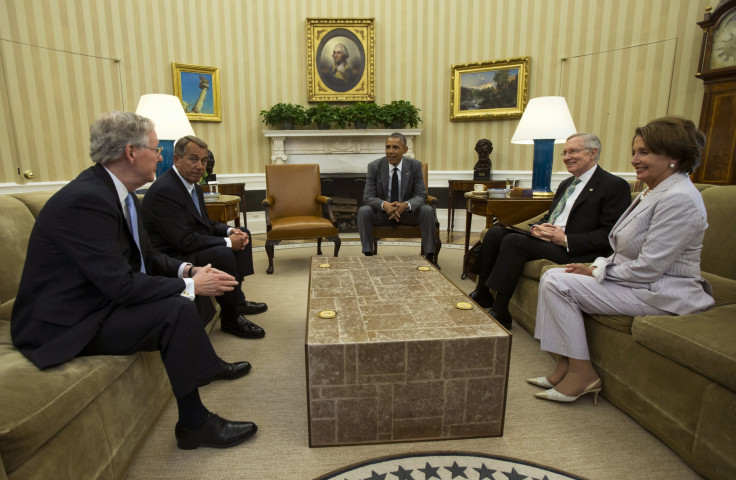US Leaders Want Iraq’s Nouri al-Maliki To Step Down In Return For US Airstrikes On ISIS: Report

The U.S. has advised senior officials in Iraq that Prime Minister Nouri al-Maliki must step down before it can intervene to help stop the advance of Sunni extremists, The Independent reported Thursday.
The advance toward the capital Baghdad by the Islamic State in Iraq and Syria, or ISIS, which has taken over parts of northern Iraq, and is fighting for control of the country's largest oil refinery in Baija, led Maliki to make a formal request on Wednesday to the U.S. to assist government forces on the ground with air strikes. However, leaders in Washington reportedly believe that the sectarian strife in Iraq cannot be diffused unless Maliki relinquishes his post.
"The Maliki government, candidly, has got to go if you want any reconciliation," U.S. Sen. Dianne Feinstein, Democratic chairwoman of the Senate Intelligence Committee, said Wednesday. Sen. John McCain, a Republican from Arizona, also reportedly pushed the president to "make very clear to Maliki that his time is up."
According to The Independent, Maliki has not been forthcoming with a decision to step down despite an aggressive advance by the Sunni extremist group, ISIS, which has forced thousands to flee from their homes in the north over the last 10 days. Maliki, who leads a Shia-dominated government in Baghdad, also has reportedly dismayed U.S. leaders with his inability to reconcile the nation’s Sunni minority.
A Wall Street Journal report on Wednesday said that the Obama administration may pressurize Maliki, who was appointed prime minister in 2006, to leave his position as it wants Iraq’s political parties to form a new government.
If Maliki does not step down from his position, according to The Independent, he could be removed by invoking a constitutional provision that takes away his current powers though it would mean a relatively slower transition to a new leadership in Iraq. Meanwhile, the Iranian government, which vowed on Wednesday to defend Shiite holy sites in Iraq, is also reportedly in a dilemma about supporting Maliki, The Independent reported.
“It is impossible that he should serve a third term,” an Iraqi politician, who did not want to be named, told The Independent.
© Copyright IBTimes 2024. All rights reserved.





















